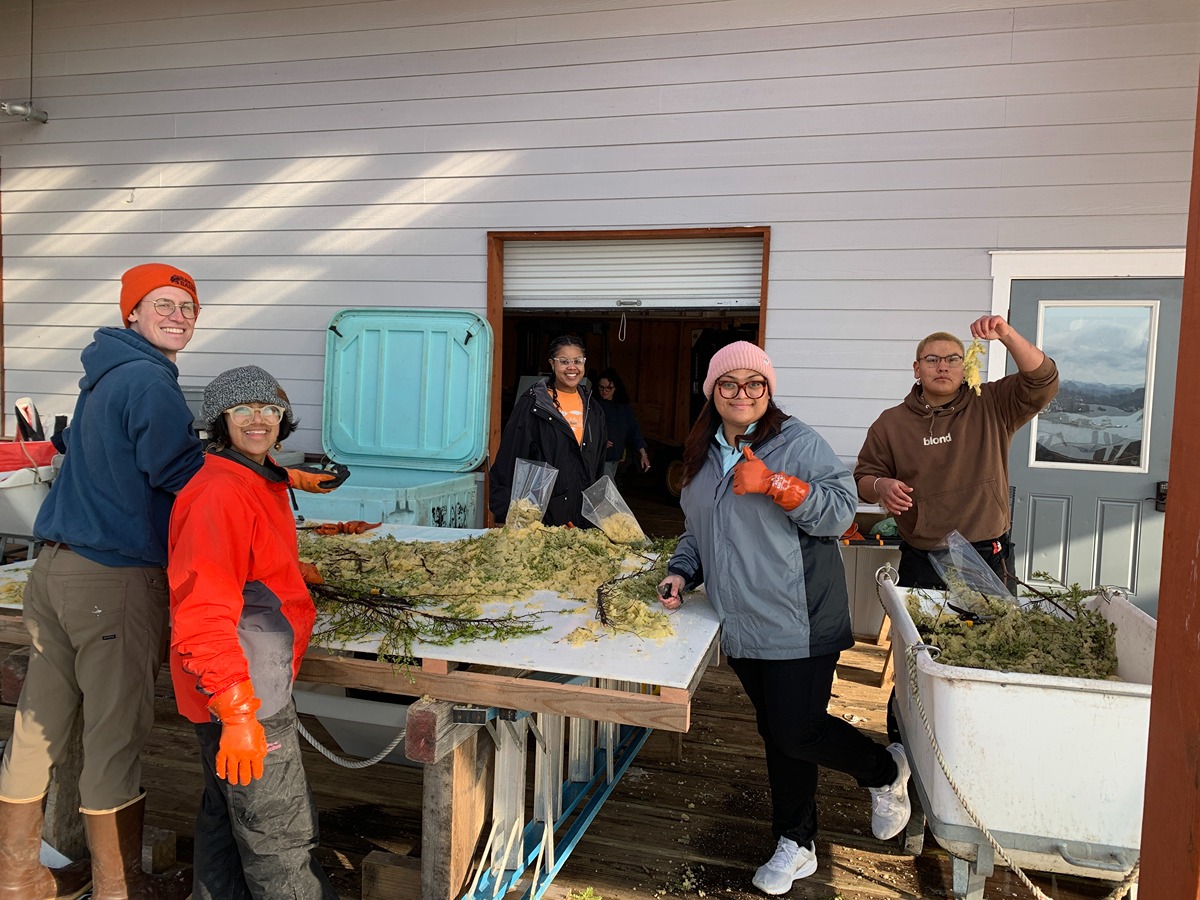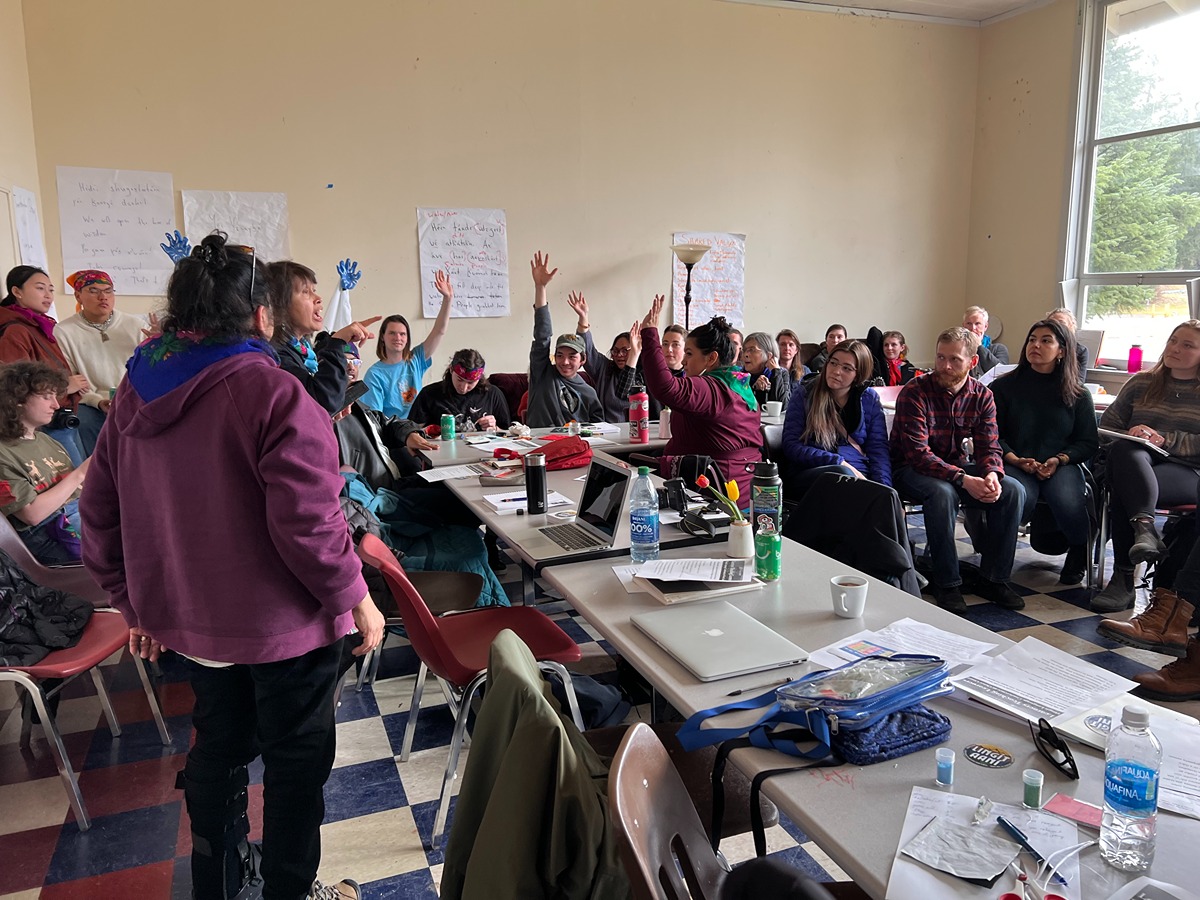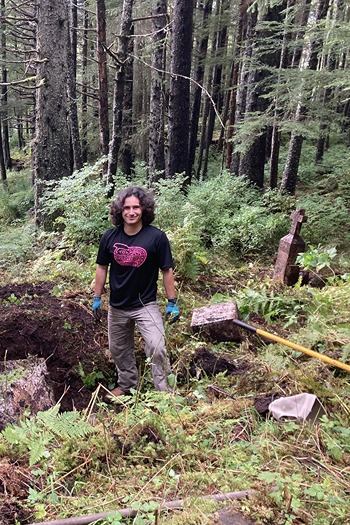The Outer Coast Year is a transformative, community-based, student-governed education for high school graduates. The spring semester ends in May 2024 and will mark the final offering of the Year. If you would like to attend Outer Coast, apply for the Undergraduate Program here.
The Year offers a one- or two-semester bridge for students to grow academically and personally in a supportive postsecondary environment. The Year gives students the time and perspective to approach their next steps, whether college or another path, with purpose and confidence. After their time at the Year, students discover more of what they want out of higher education and are prepared to advocate for themselves and for others, wherever their futures take them.
Year students spend nine months building academic skills and mindsets in a tight-knit and supportive college-level environment that empowers them to make real-stakes decisions, take risks, and learn from their mistakes. Cohorts of up to 20 students — some having just graduated high school, others already with some college experience — come together in Sitka for a formative year of education.
The Year consists of Fall and Spring Semesters, each with discrete classes and faculty. Students walk away from the Year with college credit and the preparation necessary to make the most of their opportunities in higher education.
For more information about the Outer Coast Year 2023-24 program, see the Program Overview.
The Outer Coast Year 2023-24 schedule is as follows:
| Fall Semester | August 27 – December 15, 2023 |
| Spring Semester | January 14 – May 11, 2024 |
Fall Semester 2023 Faculty
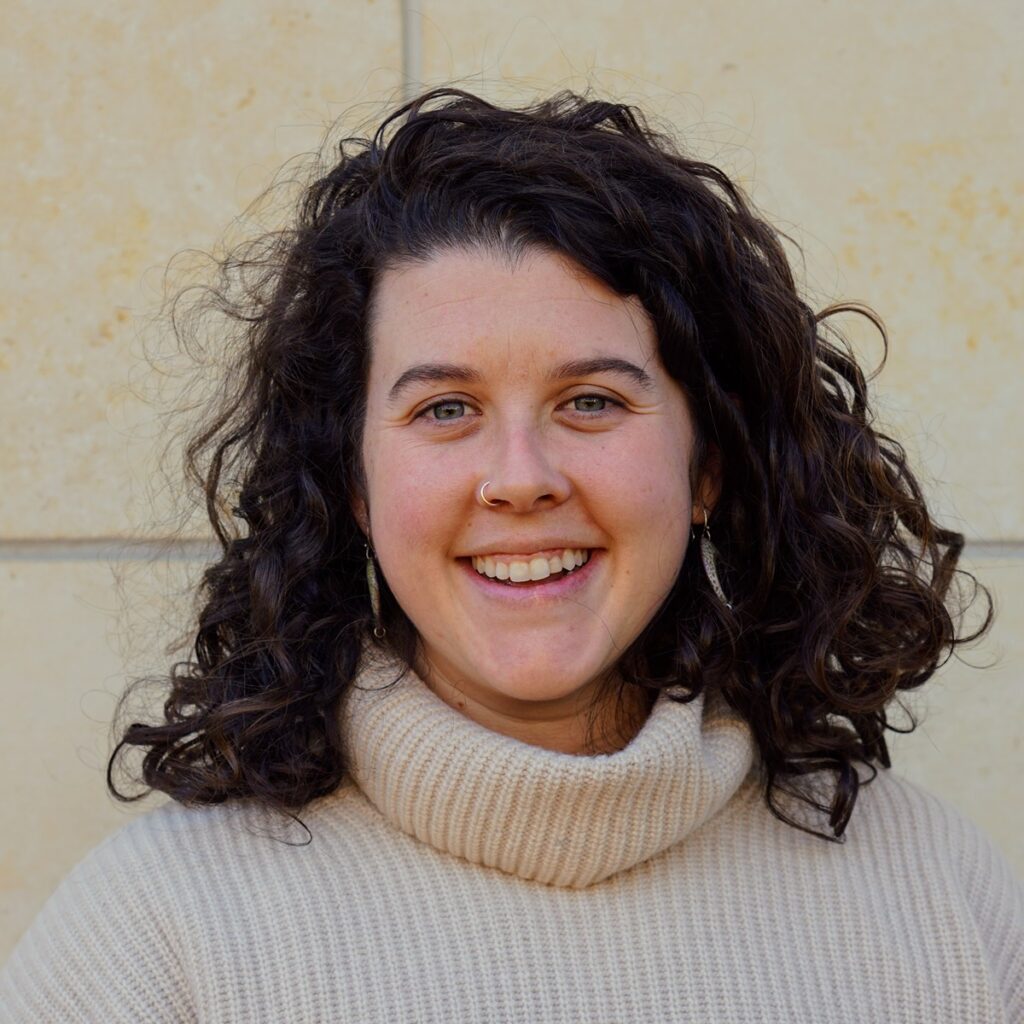
Caroline Daws
Caroline is currently teaching two courses at Outer Coast: Fungi of the Forest and Community Ecology & Ecosystems of Sitka. She is a Lecturer in Civic, Liberal, and Global Education at Stanford University, where she teaches interdisciplinary courses in the first-year requirement. Caroline first came to Outer Coast in Spring 2022, when she taught Fungi of the Forest and Intertidal: Making a Home in the Spaces in Between. She received her PhD in Ecology and Evolution with a doctoral minor in Education from Stanford University, and her research investigates how symbioses between plants and fungi shape forests and what these relationships can teach us about stewarding ecosystems in the face of global change. Caroline was born and raised in middle Tennessee and moved to the West Coast for work after finishing a BS at the University of Tennessee. In her teaching, she invites students to harness their own lived experiences to investigate, question, and expand the narratives we learn and tell about humans and the natural world. When she’s not in the lab or in the classroom, Caroline is probably in the kitchen, in the ceramics studio, or outside on foot or on a bike.
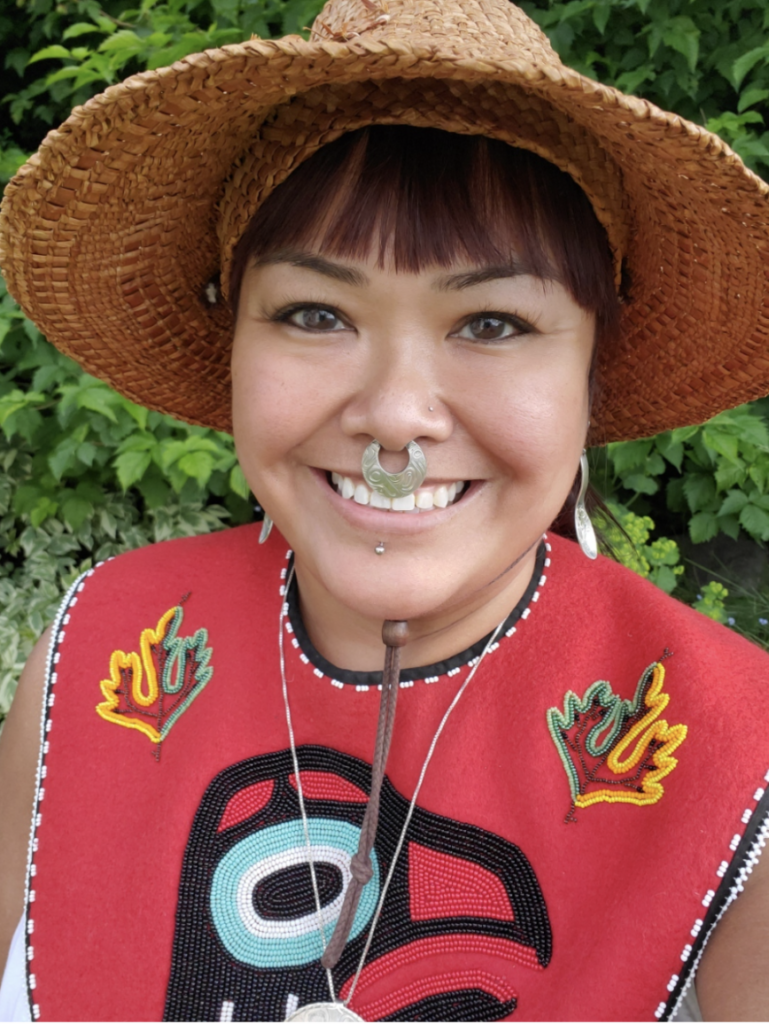
Yeidikook’áa Dionne Brady-Howard
Yeidikook’áa is currently co-teaching Indigenous Studies with Matthew Spellberg. Yeidikook’áa is of the Kiks.ádi clan’s X’aaka Hít (Point House) and grew up in Sitka. She was raised by her maternal grandparents, the late Bill and Isabella Brady; her paternal grandparents are Liz Howard and the late Glenn Howard. Her parents are Louise Brady and Glenn Howard. She is the child of the Teikweidí clan and the grandchild of the Kaagwaantaan clan. Yeidikook’áa graduated from the state-run public boarding school, Mt. Edgecumbe High School, where she has now been teaching since 2000, as well. She earned her bachelor’s degree from Sheldon Jackson College. In addition to spending more than two decades teaching students from all across the state of Alaska, Yeidikook’áa’s roots in her own culture run deep, having led two local Tlingit dance groups for several years, as well as being the caretaker of her clan’s songs. As a culture bearer, she has volunteered with the middle and high schoolers in the local Native education program, teaching song and dance. Additionally, she has taught the Alaska issues curriculum that is embedded in the US Government course at MEHS, focusing on land claims and tribal government. When she isn’t at work or engaged in one of her numerous volunteer commitments, Yeidikook’áa loves to sing, dance, watch Lord of the Rings, Star Trek, and Star Wars, Marvel and drink grande double buzzsaws with way too much cream.
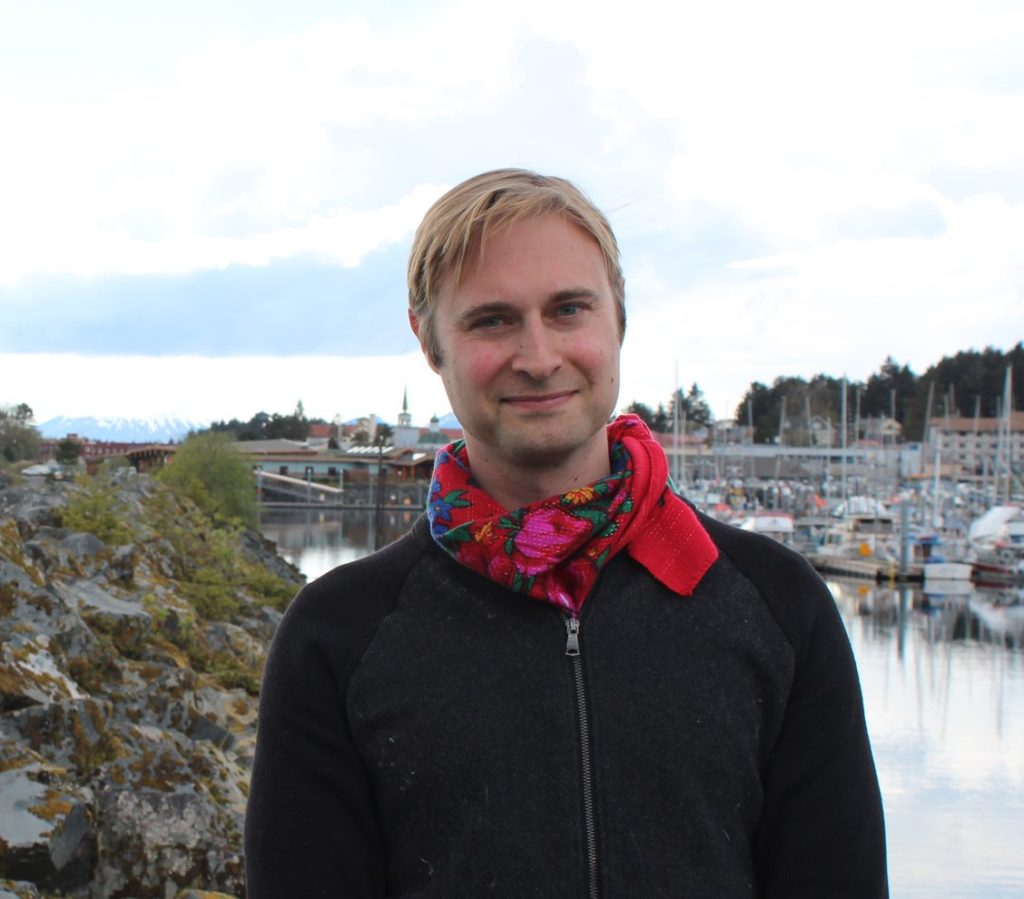
Matthew Spellberg
Matthew Spellberg is currently co-teaching Indigenous Studies with Yeidikook’áa. Matthew has been Dean of Outer Coast since summer 2022, and on faculty since the previous winter. He oversees the school’s academic pillar, and teaches courses in literature, philosophy, and Indigenous oral tradition. He also leads Tlingit language study groups, both at Outer Coast and in Sitka more broadly. He is a longtime (and hopefully lifelong) learner of Tlingit. He writes on the history of dreaming and the imagination; on oral tradition in Native North America and Europe; on Northwest Coast art; and on education and language revitalization. He was co-founder of the Native Cultures of the Americas Seminar at Harvard, and he is the creator of the Dream Parliament, an experimental protocol for reimagining dreams in a communal setting which has been performed throughout the United States and Canada. He’s also proud to serve on the planning committee for the biennial Sharing Our Knowledge Conference in Southeast Alaska. He has a PhD in Comparative Literature from Princeton, and for six years taught in New Jersey prisons with the Princeton University Prison Teaching Initiative. He is an Editor-at-Large at Cabinet Magazine, and was Guest Editor of Cabinet Issue 67, on “Dreams.” Before coming to Outer Coast, he was a Visiting Critic at the Rhode Island School of Design, and a Junior Fellow at the Harvard Society of Fellows. More information and a bibliography can be found here.
